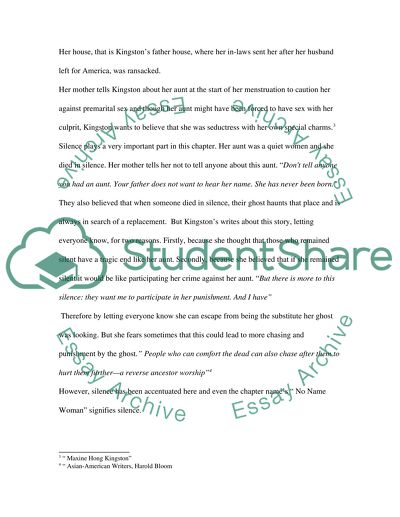Cite this document
(“Maxine Hong Kingstons Women Warrior Book Report/Review”, n.d.)
Maxine Hong Kingstons Women Warrior Book Report/Review. Retrieved from https://studentshare.org/miscellaneous/1528535-maxine-hong-kingstons-women-warrior
Maxine Hong Kingstons Women Warrior Book Report/Review. Retrieved from https://studentshare.org/miscellaneous/1528535-maxine-hong-kingstons-women-warrior
(Maxine Hong Kingstons Women Warrior Book Report/Review)
Maxine Hong Kingstons Women Warrior Book Report/Review. https://studentshare.org/miscellaneous/1528535-maxine-hong-kingstons-women-warrior.
Maxine Hong Kingstons Women Warrior Book Report/Review. https://studentshare.org/miscellaneous/1528535-maxine-hong-kingstons-women-warrior.
“Maxine Hong Kingstons Women Warrior Book Report/Review”, n.d. https://studentshare.org/miscellaneous/1528535-maxine-hong-kingstons-women-warrior.


